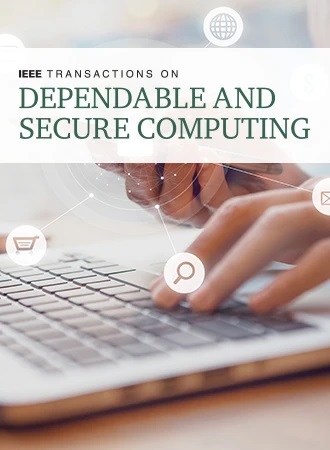基于上下文动态定价机制的局部差异私有个人数据市场
IF 7.5
2区 计算机科学
Q1 COMPUTER SCIENCE, HARDWARE & ARCHITECTURE
IEEE Transactions on Dependable and Secure Computing
Pub Date : 2023-11-01
DOI:10.1109/tdsc.2023.3239615
引用次数: 0
摘要
本文章由计算机程序翻译,如有差异,请以英文原文为准。
Locally Differentially Private Personal Data Markets Using Contextual Dynamic Pricing Mechanism
Data is becoming the world's most valuable asset and the ultimate renewable resource. This phenomenon has led to online personal data markets where data owners and collectors engage in the data sale and purchase. From the collector's standpoint, a key question is how to set a proper pricing rule that brings profitable tradings. One feasible solution is to set the price slightly above the owner's data cost. Nonetheless, data cost is generally unknown by the collector as being the owner's private information. To bridge this gap, we propose a novel learning algorithm, modified stochastic gradient descent (MSGD) that infers the owner's cost model from her interactions with the collector. To protect owners’ data privacy during trading, we employ the framework of local differential privacy (LDP) that allows owners to perturb their genuine data and trading behaviors. The vital challenge is how the collector can derive the accurate cost model from noisy knowledge gathered from owners. For this, MSGD relies on auxiliary parameters to correct biased gradients caused by noise. We formally prove that the proposed MSGD algorithm produces a sublinear regret of $\mathcal {O}(T^{\frac{5}{6}}\sqrt{\log (T^{\frac{1}{3}})})$ O ( T 5 6 log ( T 1 3 ) )
求助全文
通过发布文献求助,成功后即可免费获取论文全文。
去求助
来源期刊

IEEE Transactions on Dependable and Secure Computing
工程技术-计算机:软件工程
CiteScore
11.20
自引率
5.50%
发文量
354
审稿时长
9 months
期刊介绍:
The "IEEE Transactions on Dependable and Secure Computing (TDSC)" is a prestigious journal that publishes high-quality, peer-reviewed research in the field of computer science, specifically targeting the development of dependable and secure computing systems and networks. This journal is dedicated to exploring the fundamental principles, methodologies, and mechanisms that enable the design, modeling, and evaluation of systems that meet the required levels of reliability, security, and performance.
The scope of TDSC includes research on measurement, modeling, and simulation techniques that contribute to the understanding and improvement of system performance under various constraints. It also covers the foundations necessary for the joint evaluation, verification, and design of systems that balance performance, security, and dependability.
By publishing archival research results, TDSC aims to provide a valuable resource for researchers, engineers, and practitioners working in the areas of cybersecurity, fault tolerance, and system reliability. The journal's focus on cutting-edge research ensures that it remains at the forefront of advancements in the field, promoting the development of technologies that are critical for the functioning of modern, complex systems.
 求助内容:
求助内容: 应助结果提醒方式:
应助结果提醒方式:


